Have you ever been curious about how materials that are only visible under the microscope can have a major impact on the world? That is what nanotechnology is. But let’s not get ahead of ourselves. Let’s first answer the core question: What is Nanotechnology?
In a nutshell, What Is Nanotechnology is a science that deals with working on materials or even building devices that are very tiny in size—so tiny that their size is measured in nanometers which are one-billionth of a meter. To compare, the diameter of a human hair is about 80,000 nanometers! Nanotechnology is already here and it is not a thing future people only saw in their dreams or sci-fi movies. The field encompassing medical treatments, clean energy, electronics, and even cosmetics is the nanotech one, and it is already setting the future.
In this, we will explain What Is Nanotechnology? A Powerful Explanation for Beginners in simple language, work with it, describe its application, and its advantages and disadvantages. Why don’t we learn the basics and find out how nanotechnology affects our world in reality.
What Is Nanotechnology?
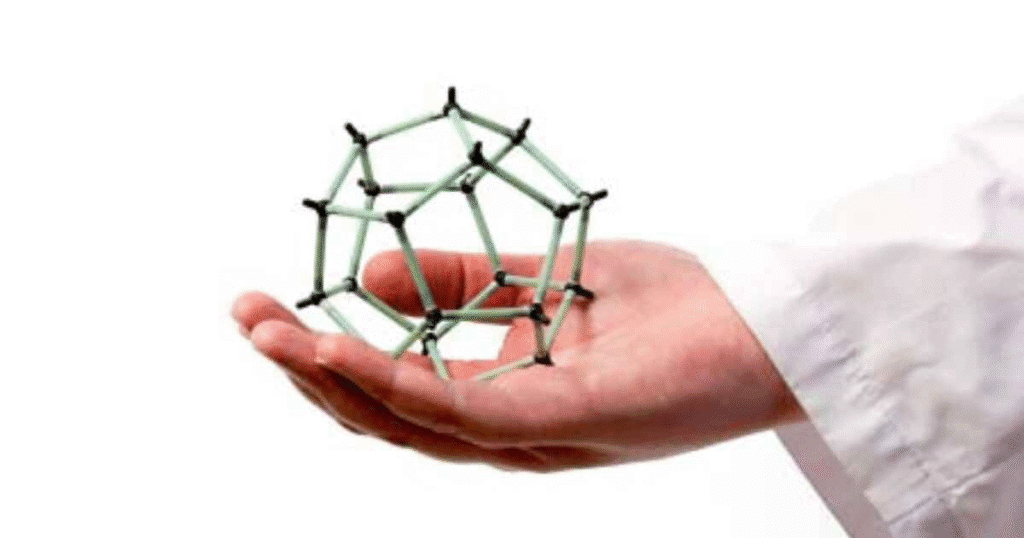
Technically, nanotechnology definition is working with the smallest and most minuscule things in the world. Scientists and engineers opt to do it on nanoscale matter, which ranges from 1 to 100 nanometers.
The explanation will be easier to grasp if one imagines working with Lego bricks. A person usually constructs things out of large blocks, but one works with Lego bricks if the blocks are atoms or molecules—the smallest matter units.
By doing this, we are able to create new materials with the properties that are not available in nature, for example, more be the properties of metals, faster working of the electronic devices, and release drugs that hit the disease cells more accurately.
In simple words, it is on the smallest scale where humans must control matter in order to get the largest scale results.
Why Is Nanotechnology Important?
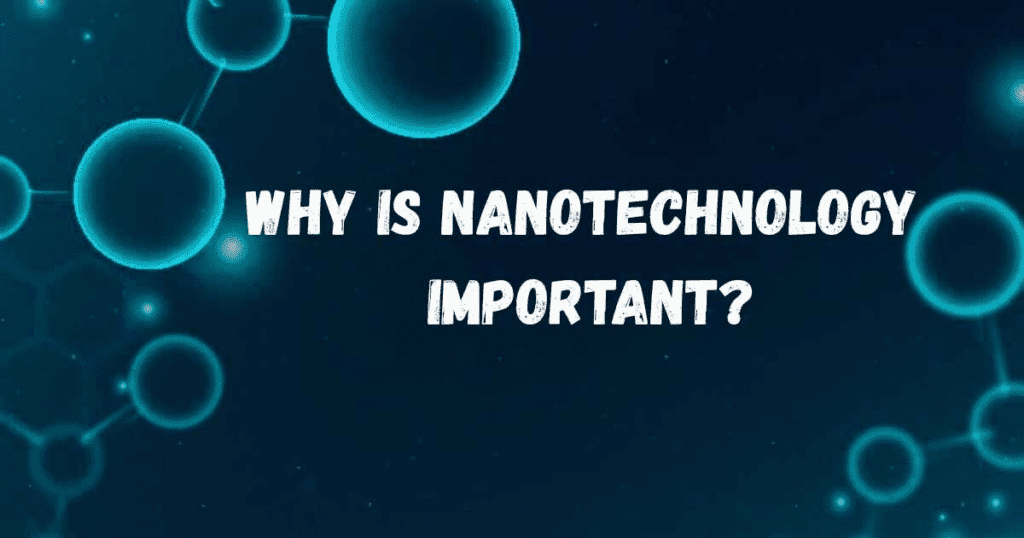
What would be the point of such a question if the answer was not conditional? In other words, the significance of What Is Nanotechnology lies in the fact that material properties change depending on the size of the materials when they are scaled down to nanoscale. Situation here:
- Materials can get more durable and lighter.
- It is highly probable the electrical and magnetic properties will alter.
- The material can become more chemically reactive, and thus the reaction rate can be higher.
With nanotechnology we may come up with products that have better features than the ones that are present in the market but are designed without this technology.
For instance, What Is Nanotechnology particles in sunblock make it more efficient and do not cause a white residue, while batteries can help store more energy and be usable for a longer time if nanotech is applied.
How Does Nanotechnology Work?
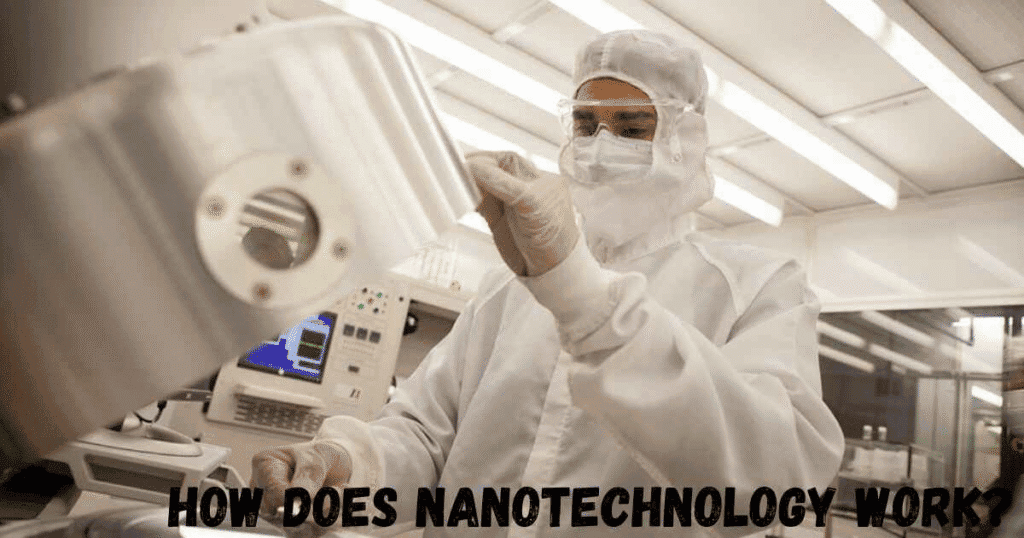
Nanotechnology is an atomic level technology. Some of the tools that are used are:
- Electron microscopes – to visualize and manipulate atomic-scale structures.
- Nano-lithography – to create and pattern materials at extremely small levels.
- Self-assembly methods – where molecules form the targeted shapes naturally.
These technologies when combined allow scientists to create the materials they want with the exact properties. For instance, a fabric treated with nanomaterials could be water-repellent and retain its softness at the same time.
Everyday Applications of Nanotechnology
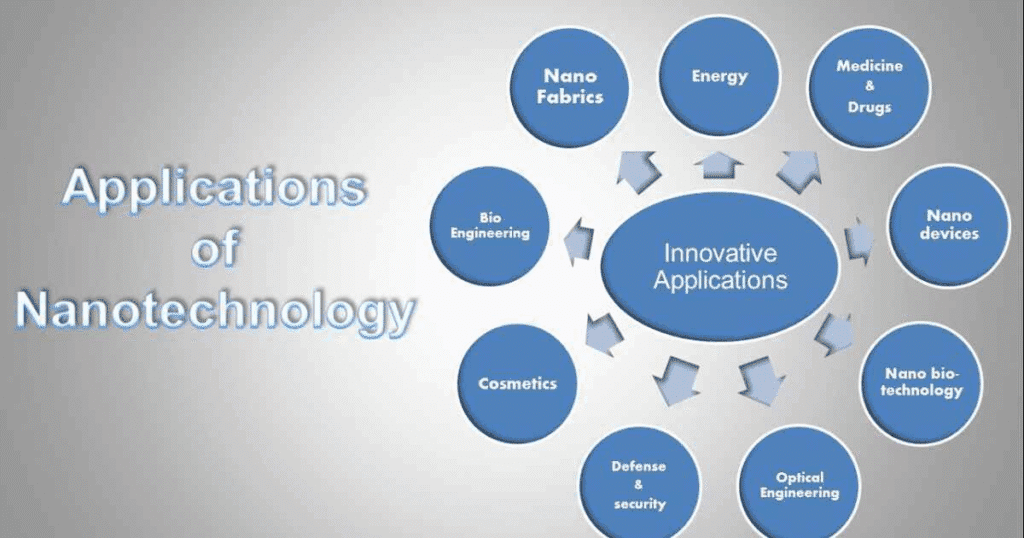
Now that you are aware of What Is Nanotechnology?How It Depends On Every Day Life Let’s Discover.
1. Medicine
Nanotechnology in medicine is the key to making healthcare better. One of the methods doctors use is drug delivery with nanoparticles directly to cancer cells, as a result, side effects are reduced drastically. Nanotech is being introduced in imaging for more precise diagnostics as well.
2. Electronics
Still, your smartphone and laptop are supported by What Is Nanotechnology? The use of nano-sized transistors has made the development of devices with smaller size, higher speed, and more power possible.
3. Energy
Nanomaterials assist in the improvement of solar panels by allowing tsthem to absorb a longer portion of the sun and in the batteries by giving them the capacity to store more energy. The result is Sturdy steps into a clean and sustainable future.
4. Environment
Nanotech filters are used to get rid of the toxins that are in the water and the air. Nano-coating can be used to make the surfaces of almost anything, which are resistant to dirt, thus there will be less need for strong cleaning chemicals to be used.
5. Consumer Products
The products we use on an everyday basis are made better through What Is Nanotechnology explained which makes them more durable, cleaner, and longer lasting. For example, clothes of the future will be stain-free and eyeglasses will not be prone to scratches.
Benefits of Nanotechnology
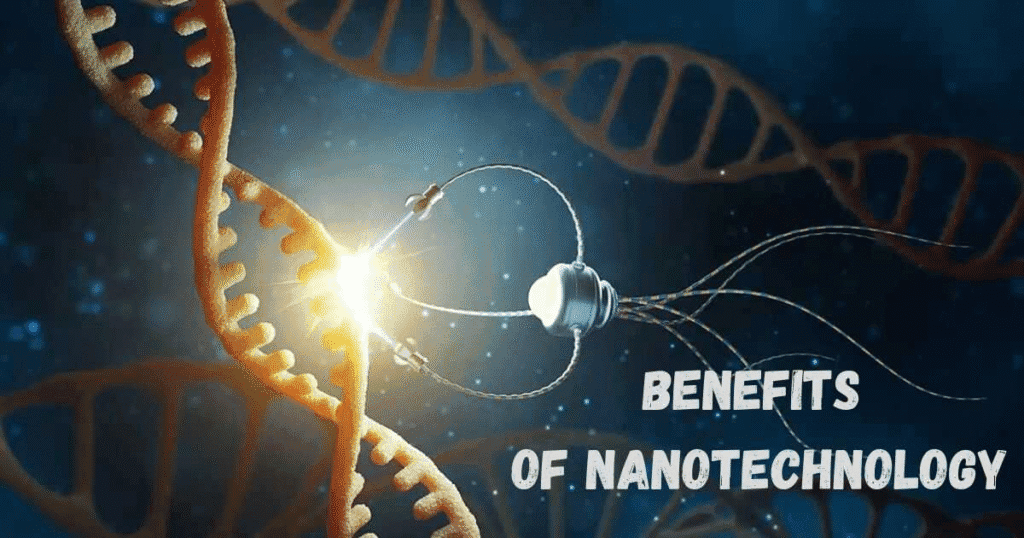
The advantages of nanotechnology are numerous, which is one of the main reasons why it is seen as revolutionary:
- Better medicine – More precise tests and targeted drug delivery.
- Environment Improvements – utilization of energy that is completely clean and driving the water clean.
- Electronics development – Devices getting smaller, quicker, and more energy-efficient.
- Materials getting stronger – Products that are not only lighter but also more durable can be anything from sports equipment to building materials.
These perks, by far, What Is Nanotechnology to the rank of one of the most promising cases of the 21st-century science field.
Challenges and Risks of Nanotechnology
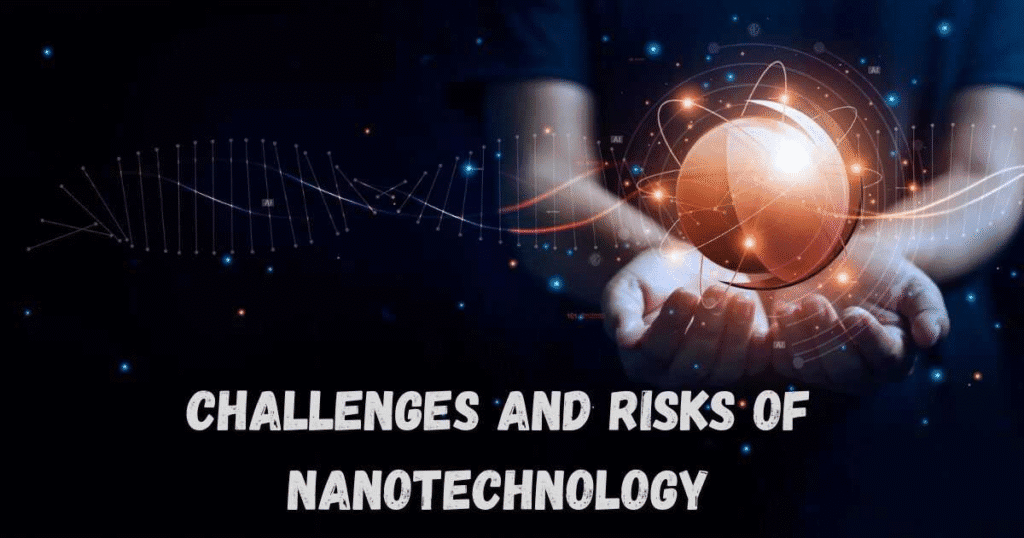
In fact, nanotechnology is no exception to the rule that all new technologies deal with some hurdles. The immense potential of nanotechnology notwithstanding, it still brings up some critical questions:
- Potential health problems – The inhaling or absorption of a few nanoparticles into the body can cause them to be toxic.
- Environment worries – Knowing the impacts of nanomaterials on nature becomes indispensable.
- Affordability and availability– Sophisticated nanotech might be costly and might not be available in all places.
- Controversy on moral issues – How society should govern and properly employ What Is Nanotechnology?
Scientists strive to get nanotechnology to be handled in a way that it brings benefits to humanity while being environmentally friendly.
The Future of Nanotechnology
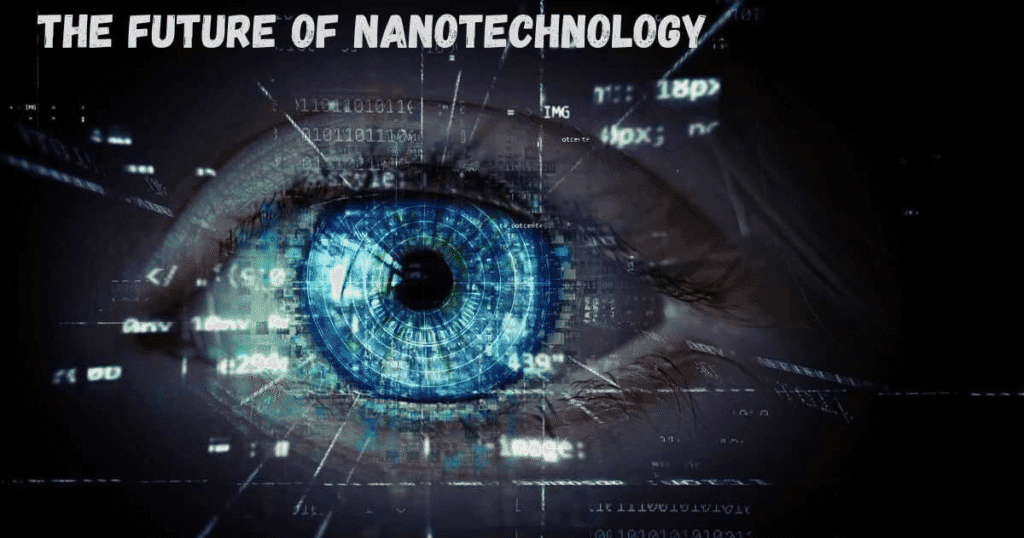
Nanotechnology has the potential to have a decisive influence in the future, it can transform almost everything we do. How about:
- Highly intelligent medications that are aware of the exact moment when the body requires them and that in that moment only, release the drug.
- Imitating nature, self-healing materials that can be used to reconstruct buildings and vehicles that have sustained any kind of damage.
- Garments that can keep the body warm or cool depending on external factors such as the climate.
- Solar panels that are not only incredibly efficient but can also provide energy to all cities.
Scientists think that nanotechnology explained will be the main factor for the next industrial revolution. It won’t stop just there, it will combine with AI, robotics, and biotech to come up with answers faster than what we can right now, which are only in our dreams.
Simple Examples of Nanotechnology in Action
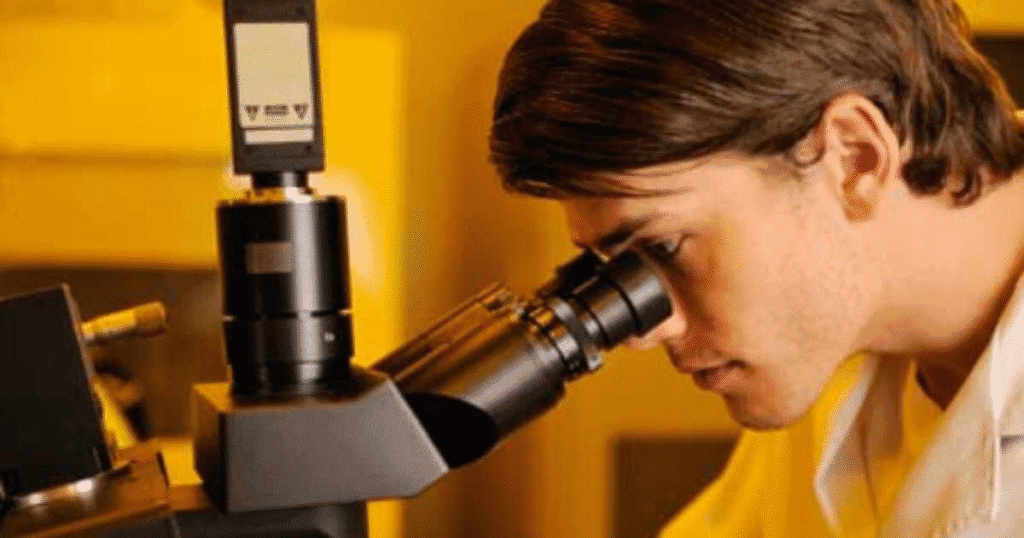
Just to be more understandable, What Is Nanotechnology used in the following ways:
- Sunscreen: The product comes with nanosized particles that help in totally blocking the sun rays, therefore, the lotion will not be left behind any white marks.
- Tennis balls: The use of nanotech on the surface of the balls allows them to stay bouncy for a longer period of time.
- Food packaging: The use of nanomaterials that are able to block oxygen and bacteria keep the food fresher.
- Clothing: The fabric of nanotech can never be old because water and stains won’t stick to it.
What Is Nanotechnology? in these everyday usages, and thus it is not only for scientists but also for everyone.
Key Takeaways for Beginners

Still asking “What Is Nanotechnology?” if so, here is a list of main points to remember:
- It is a change in the structure of matter on a scale of one billionth of a meter.
- The behaviour of the nanosized compared to the larger ones is different.
- Its great success story is in medicine, energy, environmental protection, and products for daily use.
- The benefits are great but so are the challenges.
The future of nanotechnology can be a laugh, a cry, an unexpected outcome, or a shake-up of the living, working, and caring for the Earth planet paradigms.
Conclusion
Nanotechnology explained sounds like a complicated concept. However, it is all about one tiny change that leads to a big impact. Using the nanoscale, scientists and engineers are creating materials and devices that enhance our life in numerous ways. Nanotechnology is already revolutionizing the present and the future through innovations such as intelligent medical treatment, less pollutant energy, and cutting-edge electronic devices.
Therefore, if somebody asks you “What Is Nanotechnology” what do you say? You could simply explain it as a science of building the tiniest building blocks and simultaneously getting the strongest results. Owing to its boundless abilities, nanotechnology for beginners can indeed be the solution for some of the biggest global problems we face.
Nanotechnology is transforming healthcare by making surgeries more precise and less invasive. These innovations not only improve patient outcomes but also create new opportunities for skilled professionals in the medical field. If you’re curious about how different states reward these specialized roles, explore our detailed report — Surgical Tech Salary by State (2025) Highest Paying States.
FAQs
What is Nanotechnology in simple terms?
Nanotechnology involves changing the materials at the nanoscale (1-100 nanometers) to create completely new products or simply improve the old ones.
In what ways nanotechnology is used in medicine?
Nanotechnology makes the medicine part very precise and efficient, i.e., it helps in the exact delivery of drugs as well as the early detection of diseases and advanced medical imaging of the body.
What are some common-genere examples of nanotechnology?
Nanotechnology is one of the underlying technologies that are integrated into sunscreens, stain-resistant fabrics, glass that is resistant to scratches, and the most robust sports equipment.
Is nanotechnology safe?
One would say that nanotechnology poses a low risk and therefore should be considered safe. The studies for possible adverse health effects and environmental impacts are still on.
Why is nanotechnology vital for the future?
Nanotechnology might be a great asset to the medical, energy, and environmental sectors if it ever faces challenges, then, this is exactly why it is the future technology of a safe and more advanced planet.






